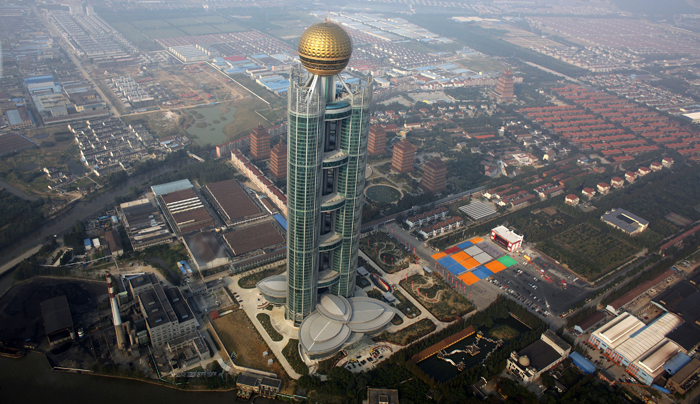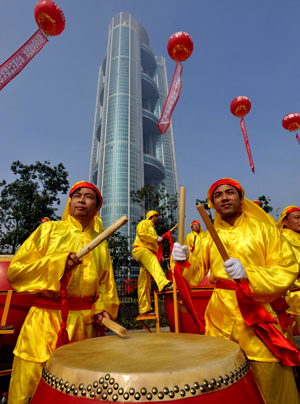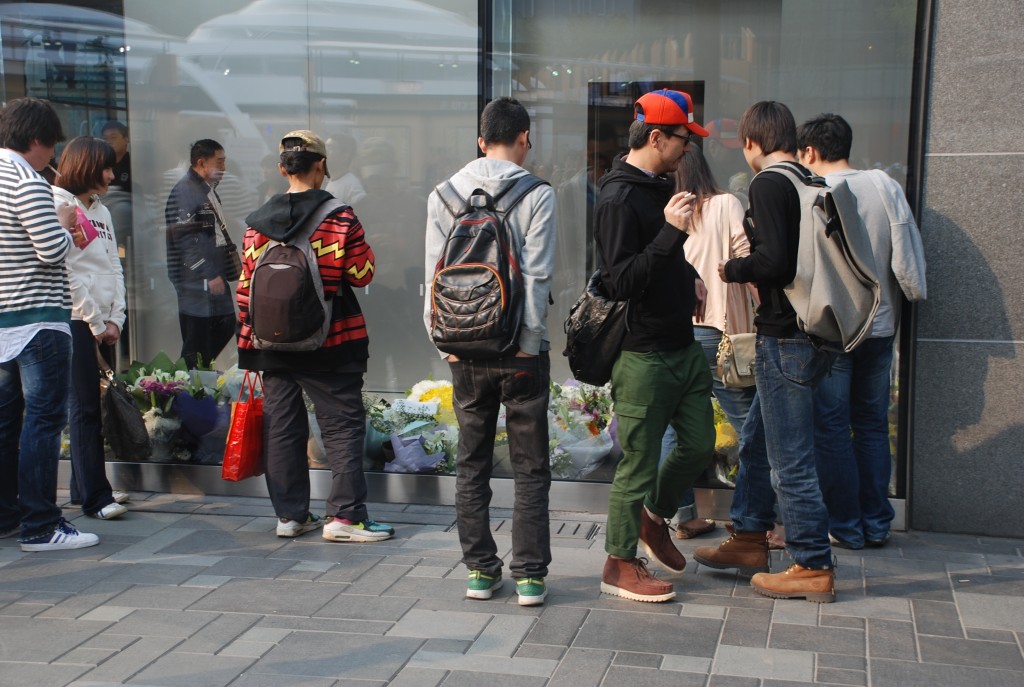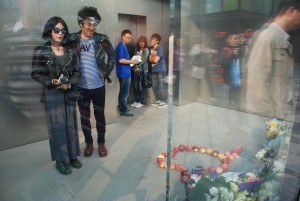
The newly inaugurated skyscraper tower of Huaxi village is seen in Huaxi village, Jiangsu province, October 7, 2011.
The opening of a new skyscraper might not be news in most big cities. But as you can see from the picture above, the Longxi International Hotel towers over the small community of Huaxi in China’s eastern Zhejiang province.
Huaxi Village (华西村), which claims to be China’s richest village, unveiled the 74-story, 328 meter tall skyscraper to celebrate it’s 50th anniversary.
In addition to the jutting building with a sphere on top, the village has also built replicas of the Great Wall, the White House and other world famous landmarks in hopes of drawing tourists.

- This photo taken on October 8, 2011 shows Chinese drummers entertaining guests at the opening ceremony of the Longxi International Hotel in Huaxi, China
The Chinese internet has been buzzing about the wealth exhibited by the village and its leaders.
A blog post on Sina written by Sha Yuanshen (沙元森) has been read over 100,000 times and garnered more than 300 comments. It points out the incongruities between the village’s peasants and the rest in China:
“Right now, Huaxi Village in Jiangsu province is celebrating its 50th birthday as “First Village in China.” The most shocking thing was that inside in the hotel there is a one ton cow statue made of pure gold valued 300 million yuan ($47m). The master spending of the Huaxi village caused amazement, as well as questioning, as some people criticized Huaxi village for “showing off their richness,” but the leader of the Huaxi village didn’t care about these comment, and also expressed that “What we are showing off is that Chinese peasants are getting richer.”
On Douban.com, a very popular website used mostly by tech savvy youth, a post by AceOfHearts, LazyCat_Diu (红桃A, 懒猫_丢) with the title of “Women, if you want to marry, marry someone from Huaxi Village” (女人们,要嫁就嫁华西村) generated over two dozen comments.
“You will be happy your whole life, the next generation will be enjoy a happy and fortunate life.”
One user, ChopMyHeart (斩心), replied:
“When I went to Huaxi Village four years ago, I heard the villagers there saying powerfully … their daughters never marry outside, but wait for the men to marry in…”
So what are your thoughts on the new tower in Huaxi? Is it a good move or does it look out of place? Let me know in the comments.









